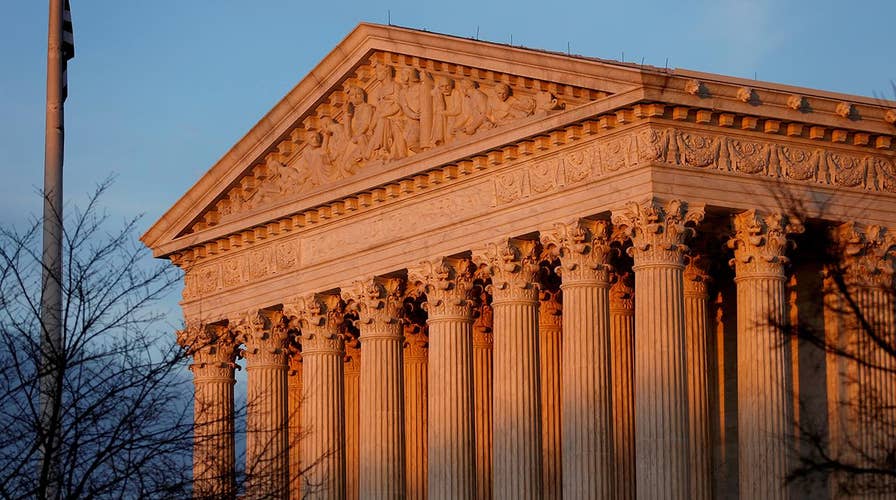Supreme Court to release major case opinions
Supreme Court hears challenge to union fees and reviews latest travel order. Judge Napolitano breaks down the cases.
The Supreme Court on Tuesday allowed Arkansas to enforce a law restricting medication abortions, rejecting an appeal from the Planned Parenthood affiliate in the state.
Planned Parenthood had asked the high court to review an appeals court ruling on the abortion pill rules and reinstate a lower court order that had blocked them from taking effect.
The law in question says doctors who provide abortion pills must hold a contract with another physician who has admitting privileges at a hospital, and would agree to handle and treat complications.
The 8th U.S. Circuit Court of Appeals had reversed a court order blocking enforcement of the law, but put that ruling on hold as Planned Parenthood appealed to the Supreme Court.
The legal battle continues, but Arkansas at this point is allowed to enforce the law.
Planned Parenthood argued that if the law stands, Arkansas would be the only state where women would not have access to a pair of drugs that end pregnancies—mifepristone, which makes it difficult for the fetus to attach to the uterine wall, and misopostol, which causes the body to expel the pregnancy, similar to a miscarriage.
Planned Parenthood offered those abortion medications at clinics in Fayetteville and Little Rock, but said it could not find an obstetricians in the state willing to handle the hospital admissions.
The organization also argued that the law prevents women from obtaining medication abortions, and would infringe on their right to an abortion, otherwise known as an undue burden. Undue burden is the standard set by the Supreme Court when measuring whether restrictions go too far in limiting women who seek to have an abortion.
Critics of the law say it could end medication abortions in the state.
The law is similar to a provision in a Texas law, which the Supreme Court struck down in 2016.
The Associated Press contributed to this report.





